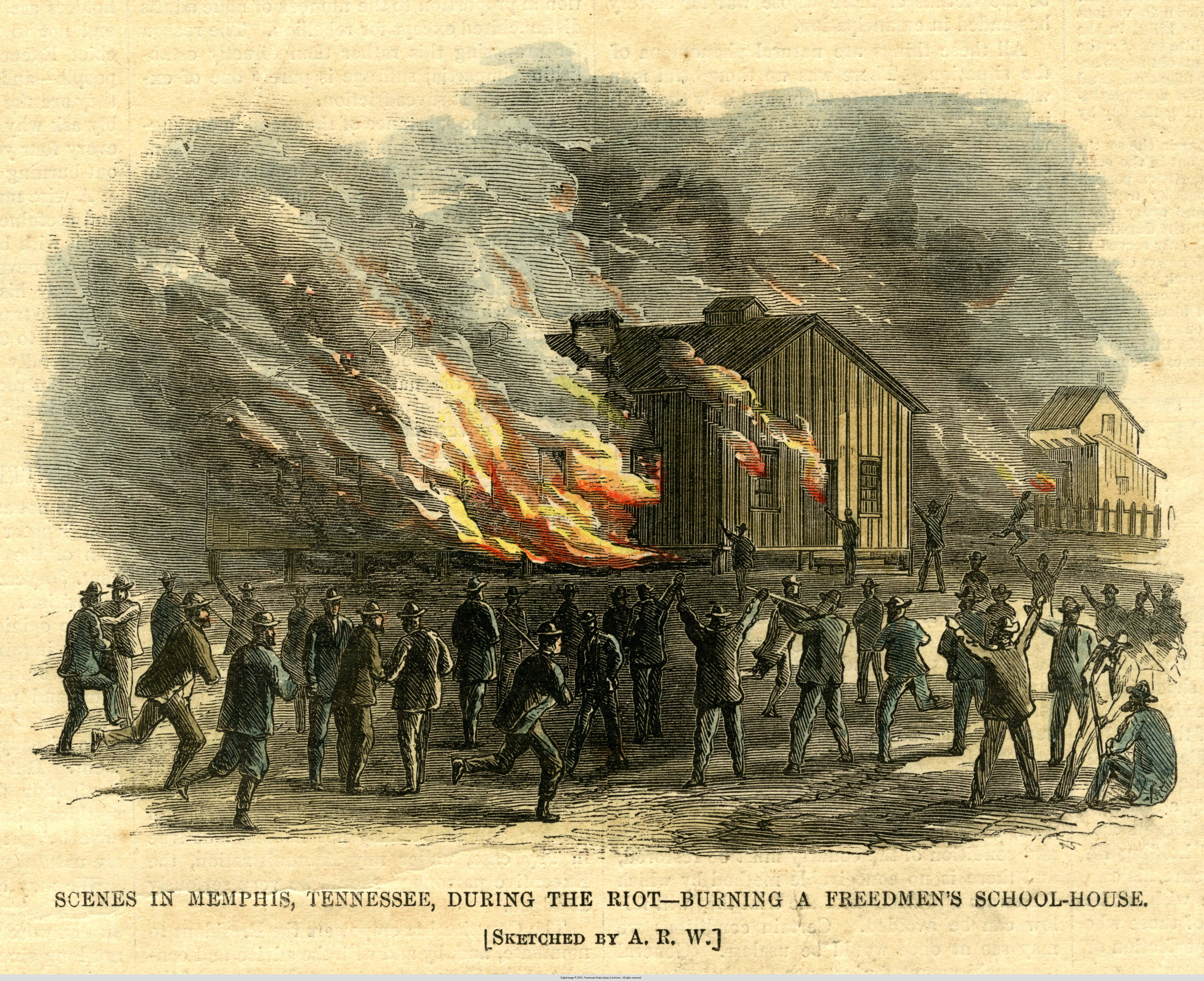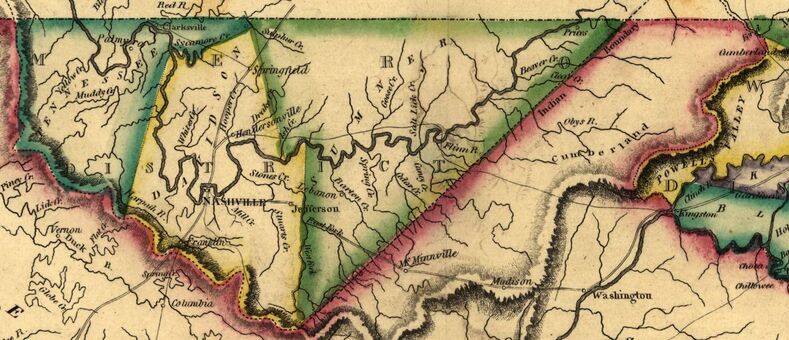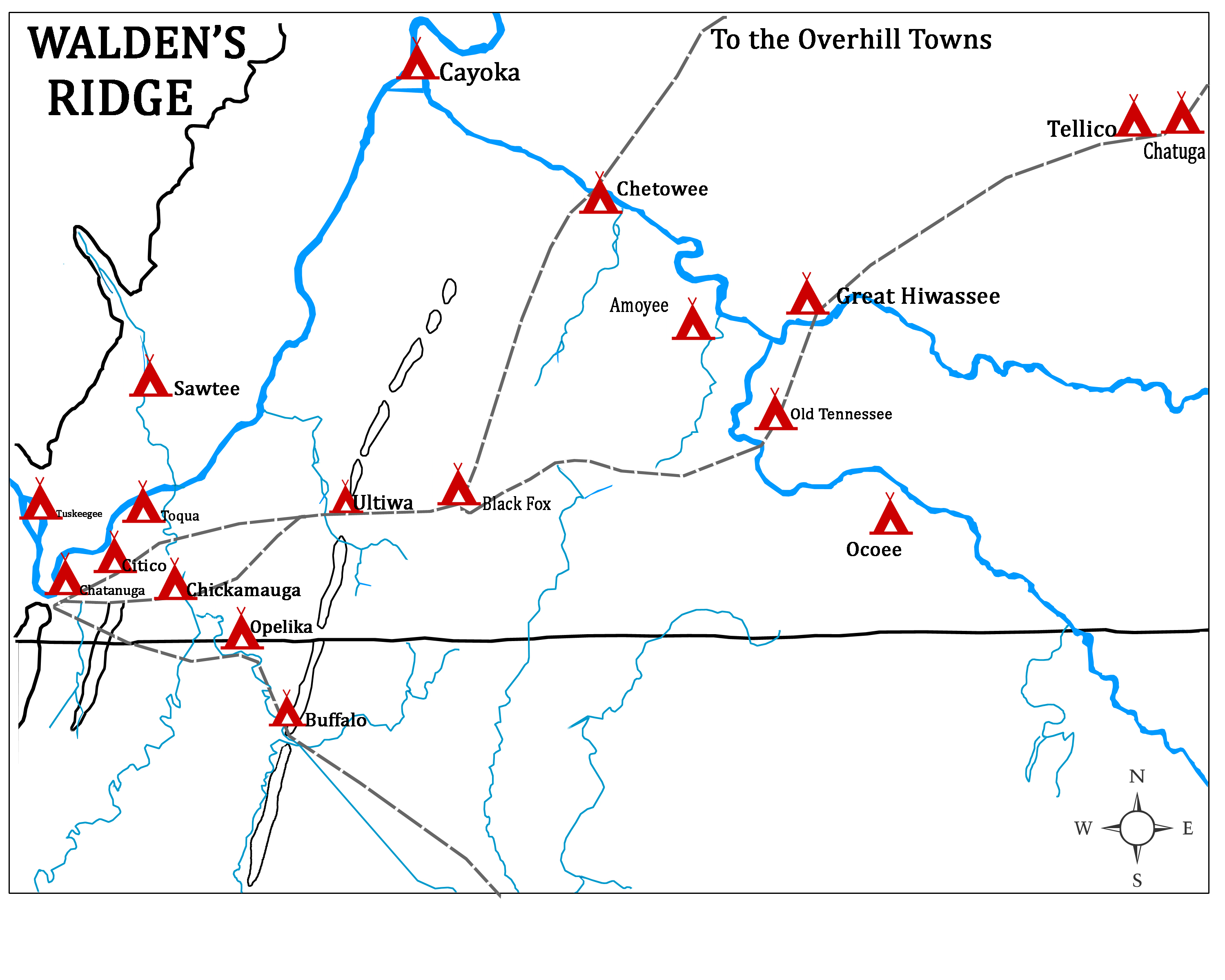|
Sally Buchanan
Sarah Ridley Buchanan ( Ridley; December 1773 – November 23, 1831) was an American settler in Tennessee. Credited with helping to defend Buchanan's Station during an attempted raid by Native Americans in 1792, Buchanan was called "the greatest heroine of the West" by writer Elizabeth F. Ellet. As stories about Buchanan's bravery spread, accounts of her life were sometimes embellished with fictional elements. Early life and marriage Sarah Ridley was born in Watauga, an early settlement in East Tennessee, in December 1773. Her father was Captain George Ridley. According to Ellet, the Ridleys left Watauga in 1779 as part of a large party moving westward, and settled in the area near present-day Nashville, Tennessee, in 1780. The Ridleys' fort where Sarah lived was one of a dozen forts in the area built to protect their inhabitants from frequent attacks by the neighboring Cherokee and Creek Indians. At the age of eighteen, Sarah married Major John Buchanan, one of the f ... [...More Info...] [...Related Items...] OR: [Wikipedia] [Google] [Baidu] |
Watauga Association
The Watauga Association (sometimes referred to as the Republic of Watauga) was a semi-autonomous government created in 1772 by frontier settlers living along the Watauga River in what is now Elizabethton, Tennessee. Although it lasted only a few years, the Watauga Association provided a basis for what later developed into the state of Tennessee and likely influenced other western frontier governments in the trans-Appalachian region. North Carolina annexed the Watauga settlement area, by then known as the Washington District, in November 1776. Within a year, the area was placed under a county government, becoming Washington County, North Carolina, in November 1777.Samuel Cole Williams, ''William Tatham, Wataugan'' (Johnson City, Tenn.: The Watauga Press, 1947), pp. 11–28. This area covers the present day Washington County, Carter County, and other areas now located in the northeast part of the state of Tennessee. While there is no evidence that the Watauga Association ever cla ... [...More Info...] [...Related Items...] OR: [Wikipedia] [Google] [Baidu] |
African Americans In Tennessee
African Americans are the second largest ethnic group in the state of Tennessee after whites, making up 17% of the state's population in 2010. African Americans arrived in the region prior to statehood. They lived both as slaves and as free citizens with restricted rights up to the Civil War. The state, and particularly the major cities of Memphis and Nashville, have been important sites in African-American culture and the Civil Rights Movement. The majority of African Americans in Tennessee reside in the western part of the state, which had a concentration of large cotton plantations in the antebellum period. Many freedmen stayed in the region after emancipation and the abolition of slavery. Historically there have been much smaller Black populations in the Middle Tennessee and East Tennessee (Appalachian) regions, because of the different geography and agricultural patterns. Demographics In the 2010 Census, 1,057,315 Tennessee residents were identified as African American ... [...More Info...] [...Related Items...] OR: [Wikipedia] [Google] [Baidu] |
19th-century American People
The 19th (nineteenth) century began on 1 January 1801 ( MDCCCI), and ended on 31 December 1900 ( MCM). The 19th century was the ninth century of the 2nd millennium. The 19th century was characterized by vast social upheaval. Slavery was abolished in much of Europe and the Americas. The First Industrial Revolution, though it began in the late 18th century, expanding beyond its British homeland for the first time during this century, particularly remaking the economies and societies of the Low Countries, the Rhineland, Northern Italy, and the Northeastern United States. A few decades later, the Second Industrial Revolution led to ever more massive urbanization and much higher levels of productivity, profit, and prosperity, a pattern that continued into the 20th century. The Islamic gunpowder empires fell into decline and European imperialism brought much of South Asia, Southeast Asia, and almost all of Africa under colonial rule. It was also marked by the collapse of the la ... [...More Info...] [...Related Items...] OR: [Wikipedia] [Google] [Baidu] |
18th-century American People
The 18th century lasted from January 1, 1701 ( MDCCI) to December 31, 1800 ( MDCCC). During the 18th century, elements of Enlightenment thinking culminated in the American, French, and Haitian Revolutions. During the century, slave trading and human trafficking expanded across the shores of the Atlantic, while declining in Russia, China, and Korea. Revolutions began to challenge the legitimacy of monarchical and aristocratic power structures, including the structures and beliefs that supported slavery. The Industrial Revolution began during mid-century, leading to radical changes in human society and the environment. Western historians have occasionally defined the 18th century otherwise for the purposes of their work. For example, the "short" 18th century may be defined as 1715–1789, denoting the period of time between the death of Louis XIV of France and the start of the French Revolution, with an emphasis on directly interconnected events. To historians who expand t ... [...More Info...] [...Related Items...] OR: [Wikipedia] [Google] [Baidu] |
1831 Deaths
Events January–March * January 1 – William Lloyd Garrison begins publishing '' The Liberator'', an anti-slavery newspaper, in Boston, Massachusetts. * January 10 – Japanese department store, Takashimaya in Kyoto established. * February–March – Revolts in Modena, Parma and the Papal States are put down by Austrian troops. * February 2 – Pope Gregory XVI succeeds Pope Pius VIII, as the 254th pope. * February 5 – Dutch naval lieutenant Jan van Speyk blows up his own gunboat in Antwerp rather than strike his colours on the demand of supporters of the Belgian Revolution. * February 7 – The Belgian Constitution of 1831 is approved by the National Congress. *February 8 - Aimé Bonpland leaves Paraguay. * February 14 – Battle of Debre Abbay: Ras Marye of Yejju marches into Tigray, and defeats and kills the warlord Sabagadis. * February 25 – Battle of Olszynka Grochowska (Grochów): Polish rebel forces divide a Ru ... [...More Info...] [...Related Items...] OR: [Wikipedia] [Google] [Baidu] |
Stanley Horn
Stanley Fitzgerald Horn (May 27, 1889-1980) was a historian, businessman, and editor. He was born at Neely's Bend in Davidson County, Tennessee, USA, on a farm that had been in his family since the eighteenth century.Harris D. Riley Jr."Stanley F. Horn " in ''Tennessee Encyclopedia of History'' After graduating from high school, he started working for the Cumberland Telephone Company. In 1908, he began working for the ''Southern Lumberman'', a trade paper on the lumber business. Horn became interested in state and Civil War history. A lifelong admiration for Robert E. Lee resulted in Horn's first book in 1935, entitled ''Boys' Life of Robert E. Lee''. In 1938, his book ''The Hermitage: Home of Old Hickory'' was published. In the following year, ''Invisible Empire: The Story of the Ku Klux Klan (1866-1871)'' was finished. In 1941, he wrote ''The Army of Tennessee: A Military History''. In 1949, he completed ''The Robert E. Lee Reader''. In the mid-1950s, he wrote ''The Decisive B ... [...More Info...] [...Related Items...] OR: [Wikipedia] [Google] [Baidu] |
Newspapers
A newspaper is a periodical publication containing written information about current events and is often typed in black ink with a white or gray background. Newspapers can cover a wide variety of fields such as politics, business, sports and art, and often include materials such as opinion columns, weather forecasts, reviews of local services, obituaries, birth notices, crosswords, editorial cartoons, comic strips, and advice columns. Most newspapers are businesses, and they pay their expenses with a mixture of subscription revenue, newsstand sales, and advertising revenue. The journalism organizations that publish newspapers are themselves often metonymically called newspapers. Newspapers have traditionally been published in print (usually on cheap, low-grade paper called newsprint). However, today most newspapers are also published on websites as online newspapers, and some have even abandoned their print versions entirely. Newspapers developed in the 17th ... [...More Info...] [...Related Items...] OR: [Wikipedia] [Google] [Baidu] |
Tennessee Historical Commission
The Tennessee Historical Commission (THC) is the State Historic Preservation Office for the U.S. state of Tennessee. Headquartered in Nashville, it is an independent state agency, administratively attached to the Department of Environment and Conservation. Its mission is to protect, preserve, interpret, maintain, and administer historic places; to encourage the inclusive diverse study of Tennessee's history for the benefit of future generations; to mark important locations, persons, and events in Tennessee history; to assist in worthy publication projects; to review, comment on and identify projects that will potentially impact historic properties; to locate, identify, record, and nominate to the National Register of Historic Places all properties which meet National Register criteria, and to implement other programs of the National Historic Preservation Act of 1966 as amended. The Tennessee Historical Commission also refers to the entity consisting of 24 Governor-appointed membe ... [...More Info...] [...Related Items...] OR: [Wikipedia] [Google] [Baidu] |
Davidson County, Tennessee
Davidson County is a county in the U.S. state of Tennessee. It is located in the heart of Middle Tennessee. As of the 2020 census, the population was 715,884, making it the second most populous county in Tennessee. Its county seat is Nashville, the state capital and largest city. Since 1963, the city of Nashville and Davidson County have had a consolidated government called the "Metropolitan Government of Nashville and Davidson County", commonly referred to as "Metro Nashville" or "Metro". Davidson County has the largest population in the 13-county Nashville-Davidson–Murfreesboro–Franklin Metropolitan Statistical Area, the state's most populous metropolitan area. Nashville has always been the region's center of commerce, industry, transportation, and culture, but it did not become the capital of Tennessee until 1827 and did not gain permanent capital status until 1843. History Davidson County is the oldest county in the 41-county region of Middle Tennessee. It dates to ... [...More Info...] [...Related Items...] OR: [Wikipedia] [Google] [Baidu] |
EBSCOHost
EBSCO Information Services, headquartered in Ipswich, Massachusetts, is a division of EBSCO Industries Inc., a private company headquartered in Birmingham, Alabama. EBSCO provides products and services to libraries of very many types around the world. Its products include EBSCONET, a complete e-resource management system, and EBSCO''host'', which supplies a fee-based online research service with 375 full-text databases, a collection of 600,000-plus ebooks, subject indexes, point-of-care medical references, and an array of historical digital archives. In 2010, EBSCO introduced its ''EBSCO Discovery Service'' (EDS) to institutions, which allows searches of a portfolio of journals and magazines. History EBSCO Information Services is a division of EBSCO Industries Inc., a company founded in 1944 by Elton Bryson Stephens Sr. and headquartered in Birmingham, Alabama. "EBSCO" is an acronym for Elton B. Stephens Company. EBSCO Industries has annual sales of about $3 billion. It is one ... [...More Info...] [...Related Items...] OR: [Wikipedia] [Google] [Baidu] |
Shawnee
The Shawnee are an Algonquian-speaking indigenous people of the Northeastern Woodlands. In the 17th century they lived in Pennsylvania, and in the 18th century they were in Pennsylvania, Ohio, Indiana and Illinois, with some bands in Kentucky and Alabama. By the 19th century, they were forcibly removed to Missouri, Kansas, Texas, and ultimately Indian Territory, which became Oklahoma under the 1830 Indian Removal Act. Today, Shawnee people are enrolled in three federally recognized tribes, all headquartered in Oklahoma: the Absentee-Shawnee Tribe of Indians, Eastern Shawnee Tribe of Oklahoma, and Shawnee Tribe. Etymology Shawnee has also been written as Shaawanwaki, Ša·wano·ki, Shaawanowi lenaweeki, and Shawano. Algonquian languages have words similar to the archaic ''shawano'' (now: ''shaawanwa'') meaning "south". However, the stem ''šawa-'' does not mean "south" in Shawnee, but "moderate, warm (of weather)": See Charles F. Voegelin, "šawa (plus -ni, -te) MODERATE, WARM ... [...More Info...] [...Related Items...] OR: [Wikipedia] [Google] [Baidu] |
Chickamauga Cherokee
The Chickamauga Cherokee refers to a group that separated from the greater body of the Cherokee during the American Revolutionary War. The majority of the Cherokee people wished to make peace with the Americans near the end of 1776, following several military setbacks and American reprisals. The followers of the skiagusta (or red chief), Dragging Canoe, moved with him in the winter of 1776–77 down the Tennessee River away from their historic Overhill Cherokee towns. Relocated in a more isolated area, they established 11 new towns in order to gain distance from colonists' encroachments. The frontier Americans associated Dragging Canoe and his band with their new town on Chickamauga Creek and began to refer to them as the ''Chickamaugas.'' Five years later, the Chickamauga moved further west and southwest into present-day Alabama, establishing five larger settlements. They were then more commonly known as the ''Lower Cherokee''. This term was closely associated with the peop ... [...More Info...] [...Related Items...] OR: [Wikipedia] [Google] [Baidu] |








